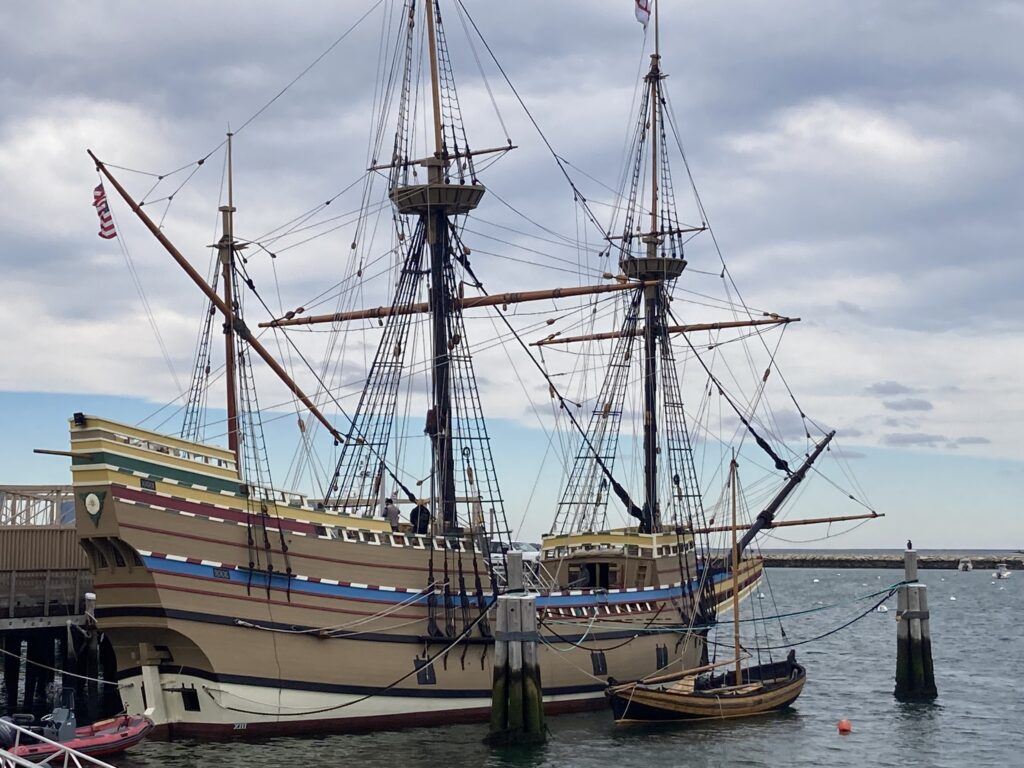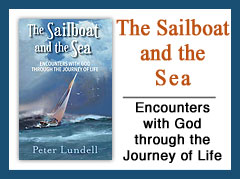The Pilgrims As They Were

I visited Plymouth, Massachusetts, and saw a replica of the Pilgrim’s (or more accurately the Separatists’) ship, the Mayflower. And I visited a replica of their original settlement.
They came partly to escape grinding poverty and take a big chance at starting a new life in the New World. But they came primarily for religious independence from the oppressive and corrupt state church in England.
They had bought a ship and were to sail on two ships, but their ship leaked, and after many weeks they couldn’t fix it, so they all piled onto the rented cargo ship called The Mayflower. A hundred and two passengers crammed into the upper cargo hold, with the lower hold filled with food and equipment. Bad storms added another two weeks’ delay, and they finally landed in November, way too late in the year to prepare for winter.
Half the people died that first winter, but one can hardly deny that God had his hand on the group. Records of subsequent decades showed that it was the mildest winter on record; had it been a particularly bad winter, they might all have died. They found a cache of food kept under a mound by a Native American village that had died out from disease. They met Samoset, who introduced them to Squanto, whose village it was, and who spoke English from having been captured by Spaniards, then bought and freed by an Englishman, who led him to faith in Christ. Squanto taught them how to farm and fish.
Unlike the first two permanent settlements in North America—a Spanish fort at St. Augustine as part of military conquest, and Jamestown, a British settlement as part of the pursuit of economic riches—Plymouth was primarily the quest for religious independence. And contrary to some false leftist narratives, the so-called Pilgrims (who weren’t called that until hundreds of years later) respected and treated the Native Americans as equal human beings under God. The proof of this is that when not just one but eventually three different Englishmen murdered Native Americans, they were given the death penalty. The Pilgrims were human and imperfect like us all, but imagine how different American history would have been if the way of the Pilgrims had prevailed upon all settlers.
Their founding charter, the Mayflower Compact, which solemnly dedicated their settlement and their society to God and the rule of English civil law, was foundationally influential on the governance of the subsequent colonies and on the forming of the U.S. Constitution.
So this Thanksgiving, don’t let dishonest Pilgrim haters into your Thanksgiving.
Remember to be thankful for their rich legacy of faith, of civil society, and of respect for all people that has blessed us all.







